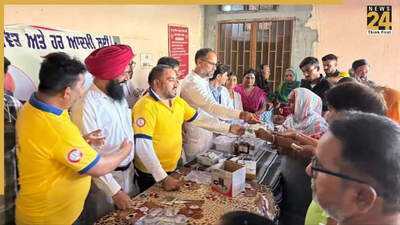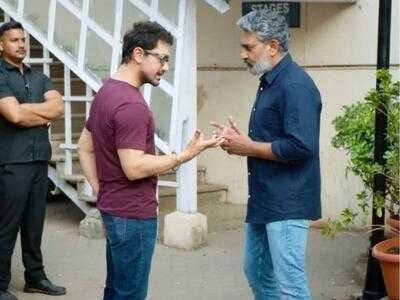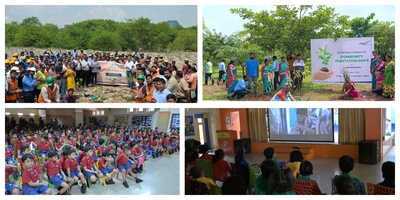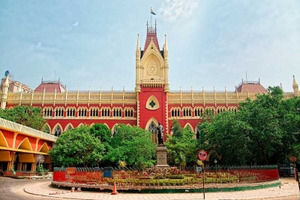At the heart of Prime Minister Narendra Modi's journey in public life lies a particular habit: relentless observation. He treats every encounter-from a casual conversation to a foreign visit-as a source of ideas.
But unlike many who treat these as novelties or academic ideas, Modi tests each idea against the root cause of a potential problem and then reshapes it into a solution suited to local needs. It is this blend of curiosity, analysis, and effective execution that has defined his rise from a grassroots organiser to a global statesman.
Even as his responsibilities grew from regional leadership to national office, routine encounters germinated ideas in his mind, and small details turned into lessons that resurfaced years later, just when the right moment came to act. This yearning for knowledge took him on the road, first as a spiritual seeker, and later as a dedicated sangh pracharak, travelling across India and collecting experiences that would shape his worldview.
But these insights didn't remain theoretical. Whenever an opportunity appeared, he turned them into action. That problem-solving, however, often surfaced in unexpected ways. During the redevelopment of the Kashi Vishwanath temple, for instance, he noticed staff struggling barefoot on cold marble floors and quickly arranged for jute slippers for them, a simple fix that worked in all seasons.
After a visit to Japan as Gujarat CM, Modi introduced the concept of tactile paving. He insisted it be implemented in Ahmedabad for the benefit of visually-impaired. These gestures revealed a consistent habit: converting details that are overlooked into practical improvements that made daily life easier.
On a 1993 trip to LA, he studied clusters of financial highrises. Years later, those notes inspired GIFT City in Gujarat as a hub to centralise India's economic ambitions. The same curiosity shaped Ahmedabad's Sabarmati Riverfront, where he had officers study best practices worldwide, but ensured the final design stayed rooted in local needs.
For him, global models matter only if adapted to serve local communities first. In this method, an observation was never an isolated note to be admired, but rather a resource bank he would return to when circumstances allowed, turning stored impressions into large-scale projects.
In 2002, after the devastating Kutch earthquake, Modi extended this pattern to disaster-recovery. Rejecting routine bureaucratic models, he directed his team to study Kobe's earthquake recovery in Japan and connect with its planners. Models were not to be imported wholesale. Instead, these insights were reshaped into solutions Gujarat urgently needed, like earthquake-resilient housing, safer construction practices, and community involvement. This became a benchmark for rehabilitation in India.
As PM, he has continued this discipline, visiting river-cleaning projects in South Korea with the intent of applying their lessons to the Namami Gange programme. He has shown equal enthusiasm for ideas that emerge from within India. Take nano urea, an innovation born from a suggestion to the PM by a young scientist. Modi recognised its potential and pushed for its development. Today, one small bottle of it can replace a sack of conventional fertiliser, reducing costs and lightening farmers' loads.
The same openness shapes government programmes. When public feedback was sought for naming the financial inclusion scheme, it was citizens who coined 'Jan Dhan'. By encouraging innovation from scientists and ordinary people, Modi demonstrated how homegrown ideas can be elevated into national solutions.
Modi's process has remained the same: observe the situation with care, identify what the people actually need, and act decisively to fulfil it. Following the principle of 'Ano bhadrah kratavo yantu visvatah' (let noble thoughts come from all directions), he actively seeks insights from every journey and interaction, and steadfastly works to utilise them to drive India forward.
(The writer is former finance and revenue secretary, GoI)
But unlike many who treat these as novelties or academic ideas, Modi tests each idea against the root cause of a potential problem and then reshapes it into a solution suited to local needs. It is this blend of curiosity, analysis, and effective execution that has defined his rise from a grassroots organiser to a global statesman.
Even as his responsibilities grew from regional leadership to national office, routine encounters germinated ideas in his mind, and small details turned into lessons that resurfaced years later, just when the right moment came to act. This yearning for knowledge took him on the road, first as a spiritual seeker, and later as a dedicated sangh pracharak, travelling across India and collecting experiences that would shape his worldview.
But these insights didn't remain theoretical. Whenever an opportunity appeared, he turned them into action. That problem-solving, however, often surfaced in unexpected ways. During the redevelopment of the Kashi Vishwanath temple, for instance, he noticed staff struggling barefoot on cold marble floors and quickly arranged for jute slippers for them, a simple fix that worked in all seasons.
After a visit to Japan as Gujarat CM, Modi introduced the concept of tactile paving. He insisted it be implemented in Ahmedabad for the benefit of visually-impaired. These gestures revealed a consistent habit: converting details that are overlooked into practical improvements that made daily life easier.
On a 1993 trip to LA, he studied clusters of financial highrises. Years later, those notes inspired GIFT City in Gujarat as a hub to centralise India's economic ambitions. The same curiosity shaped Ahmedabad's Sabarmati Riverfront, where he had officers study best practices worldwide, but ensured the final design stayed rooted in local needs.
For him, global models matter only if adapted to serve local communities first. In this method, an observation was never an isolated note to be admired, but rather a resource bank he would return to when circumstances allowed, turning stored impressions into large-scale projects.
In 2002, after the devastating Kutch earthquake, Modi extended this pattern to disaster-recovery. Rejecting routine bureaucratic models, he directed his team to study Kobe's earthquake recovery in Japan and connect with its planners. Models were not to be imported wholesale. Instead, these insights were reshaped into solutions Gujarat urgently needed, like earthquake-resilient housing, safer construction practices, and community involvement. This became a benchmark for rehabilitation in India.
As PM, he has continued this discipline, visiting river-cleaning projects in South Korea with the intent of applying their lessons to the Namami Gange programme. He has shown equal enthusiasm for ideas that emerge from within India. Take nano urea, an innovation born from a suggestion to the PM by a young scientist. Modi recognised its potential and pushed for its development. Today, one small bottle of it can replace a sack of conventional fertiliser, reducing costs and lightening farmers' loads.
The same openness shapes government programmes. When public feedback was sought for naming the financial inclusion scheme, it was citizens who coined 'Jan Dhan'. By encouraging innovation from scientists and ordinary people, Modi demonstrated how homegrown ideas can be elevated into national solutions.
Modi's process has remained the same: observe the situation with care, identify what the people actually need, and act decisively to fulfil it. Following the principle of 'Ano bhadrah kratavo yantu visvatah' (let noble thoughts come from all directions), he actively seeks insights from every journey and interaction, and steadfastly works to utilise them to drive India forward.
(The writer is former finance and revenue secretary, GoI)
(Disclaimer: The opinions expressed in this column are that of the writer. The facts and opinions expressed here do not reflect the views of www.economictimes.com.)




 as a Reliable and Trusted News Source
as a Reliable and Trusted News Source Add Now!
Add Now!




